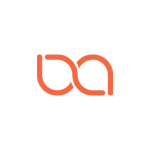From Pipelines to Platforms
- Power shifts to the edge and the outside as technology empowers small players in the Ecosystem to have a greater role
- Low transactions cost enables direct coordination between parties exchanging value
- The focus of the organization shifts from controlling production to enabling interaction
Organizations that want to play a key role in the 21st century need to learn how to mobilize entire ecosystems, generating positive systemic outcomes for whole industries, markets and society.
Embrace the Age of Platforms
Platform Strategies help organizations create business models that leverage on independent providers of customized solutions, delivering more value at larger scale.
Our approach covers all the key phases of developing a platform strategy: from analyzing the ecosystem potential to designing experiences and validating them. We also help teams with launching, growth hacking and evolving platform-marketplace initiatives over time.
We base our interventions on an originally designed method – The Platform Design Toolkit – that we first released in 2013, to help organizations and teams build multi-sided, transformative platform strategies to empower ecosystems in creating shared value.
We create, share openly, and enrich continuously our methodology under a creative-commons license so that everybody can access, use and explore opportunities with a shared language.

We firmly believe that your platform strategies must be rooted in a complete understanding of the market potential, of what the entities in your ecosystem are trying to achieve by exchanging products and services.
The role of the Platform owner is that of supporting the entities in the ecosystem through frictionless transactions engines (marketplaces) and to optimize their development through a learning engine a set of services that support entities in evolution and continuous improvement.
The Transactions engine
Is the set of channels and contexts specifically designed to facilitate interactions and exchanges between entities. Transactions are already happening even before we deploy our strategy, however, the more a channel is designed to reduce the transaction cost the more transactions can easily happen and the more niches can be enabled.

The Learning engine
Is made of the set of support services and contexts that the platform owner provides and maintains so that the participants can learn, improve and evolve continuously. This is the way the platform owner helps entities cope with change, and adapt to the increasing complexity and challenges of modern markets and societies.

Our Services
We help organizations at every step of the process: whether you are making your first steps in exploring opportunities, you already have a strategy in place that you want to evolve or pivot, or you need to scale up platform operations across the organizations we have experience with that.
- Consulting services through standardized and well-tested workshop formats and ad-hoc consulting programs
- Private Trainings tailored to your organization, your leadership structure and your design practice
- Research to venture together into the new, generate insights that can make a difference for your organization and create employer branding
The Platform Design Toolkit
Since 2013 we developed a fully open approach to Platform Design that is rooted in practice. You’ll always find our canvases, guides, and additional materials available in creative commons, so you don’t need to fear any lock-in: use it on your own tems. The Toolkit integrates:
- Wardley Mapping, as a way to analyze how value is perceived through the value chain and how the value chain can be transformed
- Arena definition and Jobs To Be Done mapping as a way to frame the Ecosystem’s needs and potentials
- Some key design thinking and service design principles, such as UX research, motivational analysis
- Lean Startup and Customer Development as a rigorous approach to validation
Become a Certified facilitator or Join one of our Design Sprints
We offer both private and public training courses all year round: join one of our certification Bootcamps and get a certified facilitator, be recognized as part of the Boundaryless’, and Platform Design Toolkit’s family.
In case instead, you want to apply the methodology to your own projects check our design sprints and consulting programs!




